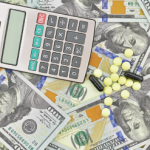NEW YORK (Reuters)—Even the astronomical price markups that consumers regularly pay for, say, wine in restaurants pale beside those in some U.S. hospitals: The price for procedures is often 10 times the cost, according to a study published Monday in the journal Health Affairs.
Of the 50 hospitals with the highest markups, 49 are for-profit, including 25 owned by Community Health Systems.
Community Health and other for-profits did not respond to requests for explain their markups, but in the past hospitals have said list prices, shown on a “chargemaster,” are irrelevant because “no one” pays those.
In fact, out-of-network patients and the uninsured are often charged list prices, said Dr. Renee Hsia of the University of California, San Francisco, who has studied hospital charges but was not involved in this research. “People do get bills based on the chargemaster, and for out-of-network care insured patients pay a percentage” of chargemaster prices, she said.
Auto insurers, covering care after accidents, and workers’ compensation also pay full freight. “That results in higher premiums for auto insurance and for employers who pay into workers’ comp,” said study co-author Ge Bai of Washington & Lee University. “That means we are all victims of these markups.”
She and Gerard Anderson of Johns Hopkins Bloomberg School of Public Health blamed lack of regulation and transparency for 1,000 percent markups. Non-transparency means patients cannot learn what a procedure will cost before they get a bill, preventing comparison shopping.
Those bills can be eye-opening. Hsia, for instance, found that charges for a lipid panel blood test varied from $10 in one California hospital to $10,169 in another; opening blocked arteries cost $22,047 in one, $165,386 in another.
For their study, Anderson and Bai analyzed 2012 data, the latest available, from the Centers for Medicare and Medicaid Services to identify the 50 hospitals with the highest markup over Medicare’s allowed charges, which Medicare considers a hospital’s cost.
The 50 had an average markup of 1,010 percent, vs. 340 percent for the other 4,433.
Medicare data for 2013, released last week, support the findings. The hospital with the highest markup in 2012, North Okaloosa Medical Center in Florida, charged $113,000 to treat respiratory infections in 2013, vs. Medicare’s $10,000. In second place, Carepoint Health-Bayonne in New Jersey charged $193,000 for pneumonia vs. Medicare’s $9,600.
To treat a type of hemorrhage common in auto accidents, Okaloosa charged $79,350 vs. Medicare’s reimbursement of $5,177.

